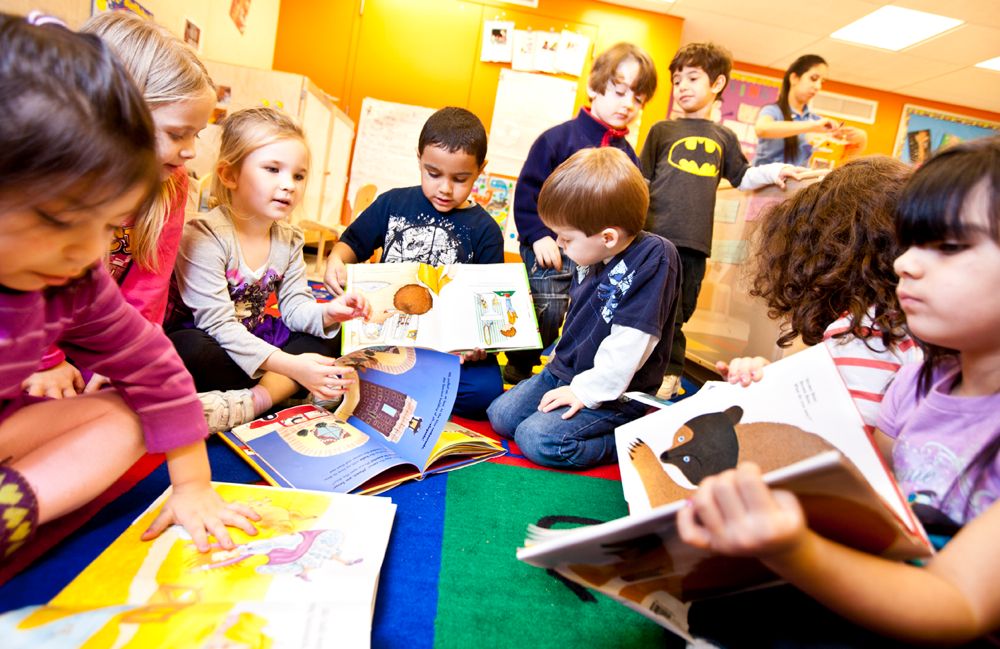
Room for faith-based pre-K as federal role expands?
The Obama administration wants to use federal funds and rules to get all states to make pre-K schooling broadly available. He’s backing a bill in the Senate to do that: Strong Start for America’s Children Act (S.1697). This bill won’t become law, but in the meantime, the Department of Education has been incentivizing states to introduce or expand government-funded pre-K through a series of Preschool Development Grants, which are awarded to states.
Is universal pre-K schooling a good idea? Should it be government-funded? Even if not government-funded, how heavily should government regulate it?
Currently much pre-K schooling is offered at modest expense via faith-based schools and centers. If government regulates more extensively, e.g., in an effort to improve quality, but does not take affirmative steps to be inclusive of faith-based curricula and teacher training, and accommodating of the identity and operations of faith-based institutions, then the presumed quality improvements will be won at the expense of varieties of schooling that many parents value (and that should receive protection under the Constitution).
Similarly, if the rules accompanying government funding are not specifically designed to accommodate faith-based participation, then the spread of government funding will force faith-based pre-K to shrink: can’t participate in the funding program, can’t compete with “free” government-supported secular pre-K.
So, how accommodating is the federal government in this push to spread the government’s role in pre-K schooling? Unfortunately, not so much.
Here’s part of the Comment submitted by the Association of Christian Schools International (ACSI) in response to the request for comments on the Preschool Development Grant Program:
“As written, the Preschool Development Grant Program appears to exclude participation of faith-based providers. This is disappointing since it effectively excludes the full diversity of low-income families, particularly those for whom faith is a priority and who are thus compelled to settle for a secular early education program or none at all. Diversity of programming would seek to ensure the ability of faith-based programs to participate.”
Similarly, the Comment submitted by CAPE, the Council for American Private Education, says:
“While the federal government should not determine the specifics of a state’s early education program, it should require, as an explicit condition for receiving a grant, that a state’s quality rating system, professional development requirements, training and credentialing requirements, curriculum guidelines, assessment system, and even health and safety standards respect and accommodate a variety of truly distinctive approaches to quality early education, including those practiced by Montessori programs, faith-based programs, and Waldorf programs.”
Notice that: without a rewrite, even secular Montessori and Waldorf pre-K programs are worried that their distinctive approaches and identities will not be respected.
What can be done? In addition to asking for regulations that accommodate diverse approaches and organizations, CAPE and ACSI recommend a form of funding that would enable faith-based schools to participate without eliminating their faith-shaped education: vouchers or scholarships rather than direct government grants or contracts to pre-K schools.
There is even a model in one of the states that shows how a state can partner fruitfully with a wide range of pre-K programs. This is from the Comment submitted by the American Association of Christian Schools:
“The State of Florida provides an exciting example of a program that has been successful in expanding early education access and choice for families by collaborating with private and faith-based Early Learning Providers. Florida’s Voluntary Prekindergarten (VPK) education program allows parents to choose from a wide variety of options for the best educational choice for their children. The options include private and faith-based programs with an allowance for these schools to maintain their religious character and mission. This diverse program is successful because it recognizes the vital role and primary responsibility of parents in children’s education, and the importance of protecting the diversity, autonomy, and mission of successful private, faith-based programs.”
